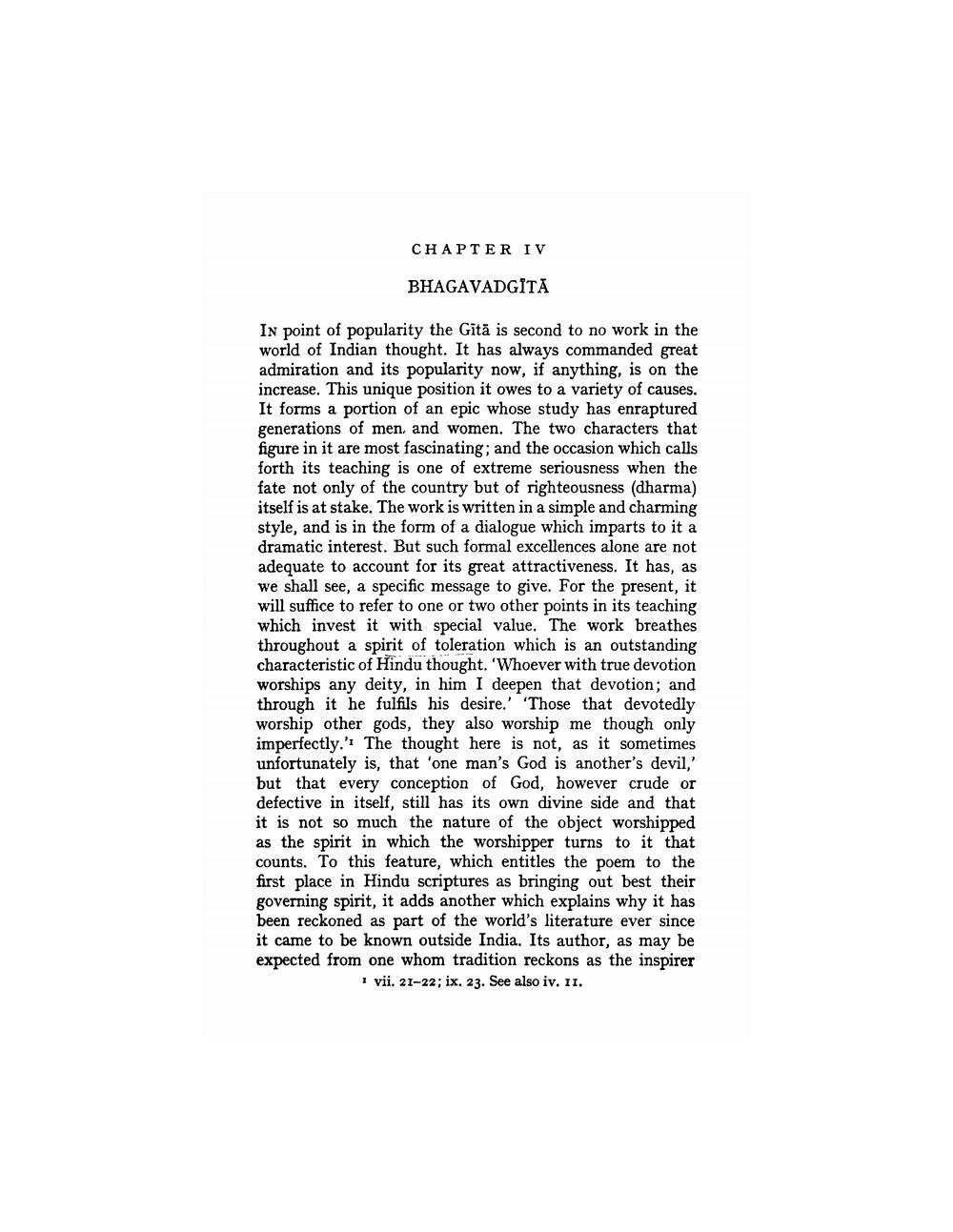________________
CHAPTER IV
BHAGAVADGITA
In point of popularity the Gītā is second to no work in the world of Indian thought. It has always commanded great admiration and its popularity now, if anything, is on the increase. This unique position it owes to a variety of causes. It forms a portion of an epic whose study has enraptured generations of men and women. The two characters that figure in it are most fascinating; and the occasion which calls forth its teaching is one of extreme seriousness when the fate not only of the country but of righteousness (dharma) itself is at stake. The work is written in a simple and charming style, and is in the form of a dialogue which imparts to it a dramatic interest. But such formal excellences alone are not adequate to account for its great attractiveness. It has, as we shall see, a specific message to give. For the present, it will suffice to refer to one or two other points in its teaching which invest it with special value. The work breathes throughout a spirit of toleration which is an outstanding characteristic of Hindu thought. 'Whoever with true devotion worships any deity, in him I deepen that devotion; and through it he fulfils his desire.' 'Those that devotedly worship other gods, they also worship me though only imperfectly.': The thought here is not, as it sometimes unfortunately is, that 'one man's God is another's devil,' but that every conception of God, however crude or defective in itself, still has its own divine side and that it is not so much the nature of the object worshipped as the spirit in which the worshipper turns to it that counts. To this feature, which entitles the poem to the first place in Hindu scriptures as bringing out best their governing spirit, it adds another which explains why it has been reckoned as part of the world's literature ever since it came to be known outside India. Its author, as may be expected from one whom tradition reckons as the inspirer
1 vii. 21-22; ix. 23. See also iv. II.




